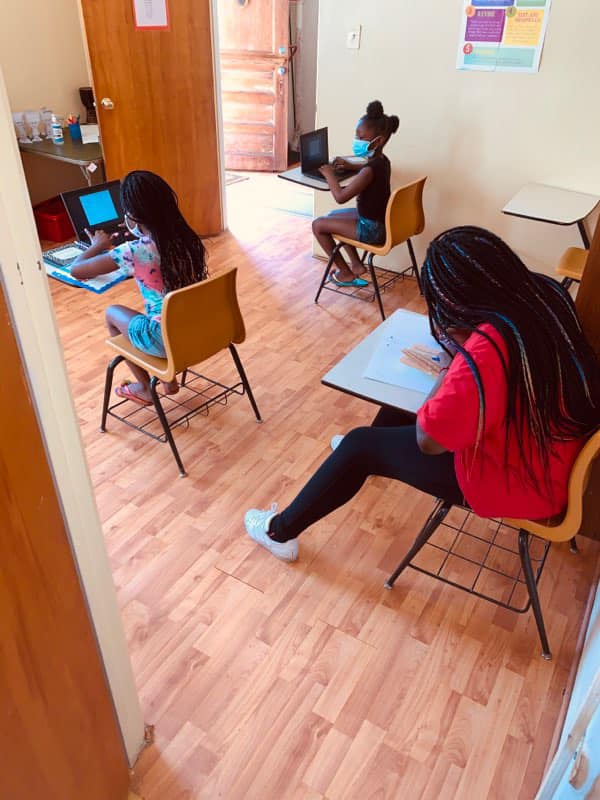For more than a century, East St. Louis, Illinois has been plagued by systemic poverty. The local schools lack essential funding and support, leaving children with few pathways to a brighter future.
For decades, two Catholic sisters have been working to change that—by founding a community center with free tutoring and academic support for kids in need. But when the pandemic hit, new resources were needed to stay open safely, and they were unsure of how to make ends meet.
Fortunately, they were not alone. Early this summer, donations and grants, such as the $1,000 grants that both sisters received from the Sisters on the Frontlines program offered much-needed support for the program.
The Griffin Center
The Griffin Center, the after school program for Catholic Urban Programs, was founded in 1986 and serves the needs of families who are extremely poor or homeless in the metro East St. Louis region. Its four centers offer free programs to these children and families residing in six public housing developments. Cofounder Sr. Julia Huiskamp, MSW, D.C., and Sr. Beth Ruder, D.C., have seen firsthand the impact the pandemic has had on this vulnerable population.
We made it our policy early on … to give these kids wings so they can fly out of here and set out to be their best selves, away from poverty and depression.”
Julia Huiskamp, MSW, D.C.
When the schools and the Griffin Center closed in March, the children were left without essential tools for online learning. Many families quickly faced food insecurity. Even before the pandemic, local unemployment had been high. Families in the area needed the center now, more than ever.
The resilient people served by the Griffin Center inspire the sisters to endure. Hear Sister Beth Ruder describe what she learns in walking with others in their challenges:
Creativity and compassion
As weeks turned into months, and the schools and Griffin Center remained closed, the sisters and their team at the center were devising plans to reopen for a four-week summer day camp at four of their sites. Looking further into the future, they also started enrolling children in an after-school program that began mid-August. Some felt it was premature to plan for the fall, but the sisters forged ahead.
Both the summer day camp and the fall after-school program have proved to be costly endeavors. New safety protocols required enhanced sanitizing procedures. They now needed to purchase masks and thermometers, as well as more toys and books because the children cannot share them. Pre-pandemic budgets did not account for any of these expenses.
However, when camp opened this summer, participants felt the benefits immediately. The toll of the lockdown, especially being stuck in crowded public housing complexes, soon gave way to the joy of seeing friends and participating in fun learning activities.

Sr. Julia Huiskamp, MSW, D.C. can see the difference the summer camp made:
We had to get pretty creative to keep the kids safe while ensuring they also had some fun. And it worked. No staff or child got sick … We are grateful.”
Sister Julie Huiskamp shares how the center was able to adapt quickly and creatively to give kids a safe place to play and learn.
With donations and grants, such as the $1,000 grants that both sisters received from the Sisters on the Frontlines program, they are feeling more certain that the Center will remain open for the fall. And now that the local schools have made the decision to employ an all-virtual format, the sisters know the after-school program will be more important than ever.


